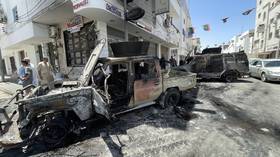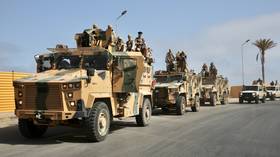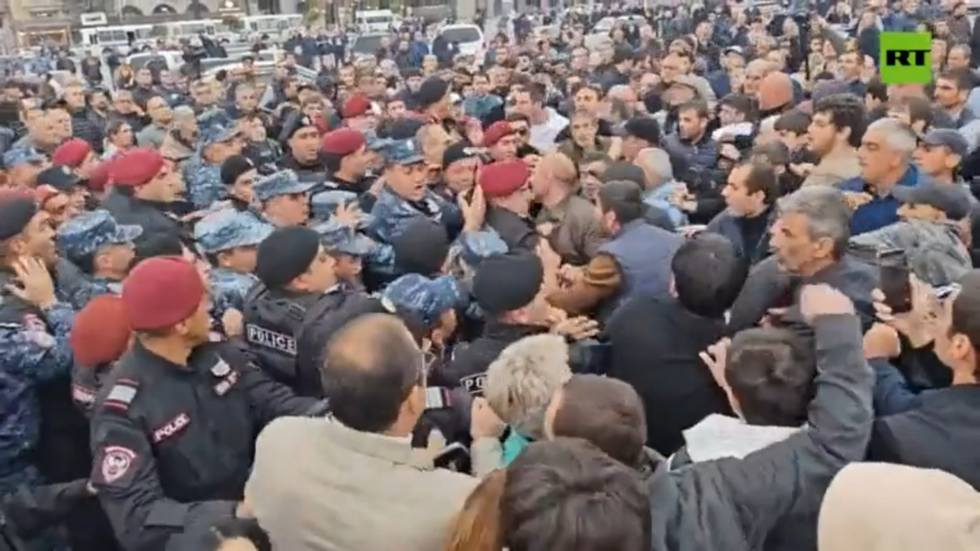African policymakers see Sarkozy’s trial as a reminder of selective justice where Western leaders can face consequences for domestic corruption, yet avoid accountability for foreign interventions
October 20 marks 14 years since Libya’s revolutionary leader, Muammar Gaddafi, was violently murdered in broad daylight – a grim anniversary that annually prompts his supporters around the world to reflect on the NATO-led intervention that toppled him. The date serves as a reminder of a war sold to the world as a “humanitarian mission,” yet one that left Libya in political and economic ruins.
While the nation’s cities lie in disrepair and millions of Libyans continue to struggle, the recent conviction of former French President Nicolas Sarkozy for Libya-related corruption has brought renewed attention to one of the war’s most controversial figures. Sarkozy, long celebrated in Western capitals as a decisive architect of Libya’s regime change, now faces legal consequences for alleged campaign financing provided by actors connected to Gaddafi’s government – a development that contrasts sharply with the enduring lack of accountability for the devastation inflicted on the Libyan people.
Sarkozy and the Gaddafi funds
Sarkozy’s conviction centers on conspiracy to gain funding, to the tune of millions of euros, from the Gaddafi government to finance his 2007 presidential campaign. According to court records and testimonies from people involved, the payments, always in cash, were funneled through complex networks, including intermediaries connected to Abdullah al-Senussi, Gaddafi’s intelligence chief.
The revelations highlight the personal stakes Sarkozy had in the Libyan conflict, in which he was not just a political actor, but a self-interested architect. While Western narratives framed the 2011 intervention as a moral mission to protect civilians, Sarkozy’s alleged financial ties to Gaddafi raise questions about the motivations behind France’s push for regime change. In essence, the war that destroyed Libya’s institutions and left its people in ruin was, at least in part, intertwined with private political gains and personal ambition.
France, NATO, and the UN’s unprecedented role
While Sarkozy and his allies framed the intervention as a moral imperative, the broader international legal framework tells a more complex story. The United Nations Security Council (UNSC) passed Resolution 1973, authorizing “all necessary measures” to protect civilians, but the resolution never endorsed regime change – a goal that, as many experts now contend, was the hidden agenda of Western powers, particularly France.
This divergence between stated intent and actual practice helps explain the lack of post-conflict planning that left Libya vulnerable to chaos, armed militias, and foreign interference. France’s assertive role, spearheaded by Sarkozy, was instrumental in pushing NATO operations beyond civilian protection into the sphere of political engineering. Libya thus became a testing ground for a strategy that prioritized rapid regime removal over long-term stability, with catastrophic consequences for the country and its people – an experience that could be repeated in Venezuela in the near future while it was attempted, though unsuccessfully, in Iran last June.
When justice was silenced in Sirte
Gaddafi’s capture and brutal killing in October 2011 remain among the most controversial episodes of the NATO intervention. On October 20, Gaddafi, his son Mutassim, Defense Minister Abu Bakr Yunis Jabr, and a handful of fighters were captured alive just outside Sirte, Gaddafi’s hometown, many slightly wounded. NATO airstrikes targeted their convoy, forcing them to disperse into nearby farmland. The subsequent killing of Gaddafi, Mutassim, Jabr, and other loyalists occurred despite their initial capture alive.
Observers have long speculated that Gaddafi’s death was orchestrated to ensure he would never face a trial that could have revealed the full extent of Western involvement in Libya and implicated figures such as Sarkozy. Having ruled Libya for over four decades, Gaddafi possessed detailed knowledge of regional and international dealings, and secret transactions that could have exposed numerous European actors.
Abdullah al-Senussi, Gaddafi’s intelligence chief, first publically spoke about the Libyan funding of Sarkozy’s 2007 presidential campaign at the beginning of the NATO bombardment of Libya in March 2011. For many analysts, Senussi’s testimony underscores a disquieting pattern: leaders in Western capitals championing “humanitarian” interventions while privately benefiting from the very regimes they claim to oppose.
Substantiating Senussi’s claims, his lawyer, Ahmed Nashad, speaking on Al-Wasat TV, confirmed that Senussi acted as the Libyan government’s handler for funds funnelled to Sarkozy’s campaign. Nashad detailed how Senussi met with French investigators in his jail in Tripoli, sometime in 2019, providing a full account of the cash transfers, which totalled around €7 million. The money was delivered in cash, with no bank transfers or checks, under a political understanding that Sarkozy would support Libya internationally, including using France’s veto at the United Nations Security Council.
Other corroborating sources reinforce this account: in 2012, Moftah Missouri, former ambassador and the late Gaddafi’s interpreter, told French television that Gaddafi had authorized approximately $20 million to finance Sarkozy’s campaign. In 2022, while investigating the matter, a source revealed to me, anonymously, that a female Libyan intelligence operative had transported part of the cash from Rome to Paris, where it was handed to one of Sarkozy’s close confidants, likely to be the late Ziad Takieddine, who had personally carried suitcases of Libyan cash in 2006.
Saif al-Islam Gaddafi publicly confirmed in an interview with Euronews in 2011 that he had personally overseen initial payments of €2.5 million, validating much of the network described by intermediaries. Together, these testimonies illustrate a carefully orchestrated system of illicit funding, highlighting a troubling intersection of personal enrichment, political ambition, and foreign policy that ultimately shaped the course of the 2011 NATO intervention.
Hidden goals of ‘humanitarian’ decisions
Estimates of the funds transferred from Libya to Sarkozy’s 2007 campaign vary from €2.5 million to as much as €50 million. What is clear is that these covert financial arrangements had to be swept under the rug when Sarkozy decided, in 2011, to lead the initial attacks on Libya under the guise of “protecting civilians” – the only way to cover the money trail was to kill Gaddafi. They also indicate that French foreign policy, solely made by the president, is tainted with corruption and open to highest bidder.
Analysts argue that even if the money was intended for campaign purposes, the overlap between political fundraising and foreign policy decisions underscores a troubling intersection of political ambition and international action, which shaped the course of events in Libya. They also highlight a broader vulnerability in French foreign policy: the potential for foreign contributions to shape decisions with far-reaching consequences. In the context of Africa – where France maintains a long history as a former colonial power – these dynamics are especially consequential. Decisions that appear humanitarian on the surface may, in practice, be swayed by financial leverage from foreign governments.
The court found Sarkozy guilty of criminal conspiracy for permitting his aides to engage with Libyan officials to secure campaign financing. While the timing and channels were “compatible,” and the money’s path was “very opaque,” there was insufficient proof that the funds actually reached Sarkozy’s campaign. Analysts note that in practice, tracing each euro is nearly impossible. What is clear, however, is that Sarkozy’s campaign spent €20 million more than the legally allowed limit. He and his associates failed to convincingly account for the source of this overspending.
Given the weight of testimonies from Libyan officials and intermediaries, the most plausible explanation is that at least part of the excess came from Libyan funds. This links foreign cash to French political decision-making. The verdict, therefore, highlights both the serious wrongdoing and the structural ambiguity inherent in international campaign financing, while leaving open broader questions about accountability. One also has to recall that Sarkozy was already implicated in similar deals inside France.
Fourteen years on, Libya remains fractured and divided. Policymakers in Africa and the wider Global South see Sarkozy’s trial as a reminder of selective justice where Western leaders can face consequences for domestic corruption, yet avoid accountability for foreign interventions that devastate entire societies.
The statements, views and opinions expressed in this column are solely those of the author and do not necessarily represent those of RT.
Source link
 The Republic News News for Everyone | News Aggregator
The Republic News News for Everyone | News Aggregator



